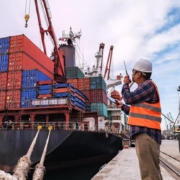Impact of New Regulations on the Maritime Sector
The maritime sector is undergoing a significant transformation due to the implementation of new international regulations focused on environmental sustainability. One of the most notable regulations is the implementation of stricter limits on sulfur emissions established by the International Maritime Organization (IMO), known as IMO 2020. This regulation requires vessels to use fuels with a sulfur content of no more than 0.50%, marking a momentous shift toward reducing pollution and protecting marine ecosystems.
While these measures are welcomed for their contribution to mitigating climate change, they have also created logistical and economic challenges for shipowners and operators worldwide. Adapting to these regulations requires investments in technologies such as gas scrubbers and the use of alternative fuels like liquefied natural gas (LNG). In this changing environment, the sector faces the responsibility of balancing regulatory compliance with operational efficiency and global competitiveness, underscoring the importance of innovation and strategic planning in a future increasingly geared toward sustainability.








